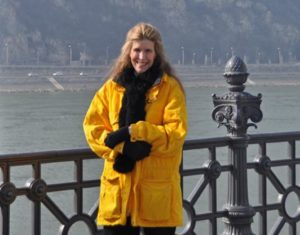
Many a wise man in this world have been quoted, saying “We are all put in this world for a reason”. Some for the betterment of mankind while others to enhance or spike it. But there are still a few who look beyond the matrix of human life and seek contact with the world beyond. From the legendary Jane Goodall and her love for gorillas to the famed crocodile hunter Steve Irvin who have dedicated their lives to the preservation and propagation of the knowledge of a world that exists beyond our comfort zones. Recently, I had the opportunity to meet with one such titan, who has converted her love for the animal world into a mission to promote the ethical and effective harness of natural fibres across the continents and bring to light the untold stories of the people intertwined with this tryst.
With a long love relationship with animals, Linda Cortright has been, through her magazine, a promoter of the welfare and natural ways in which one can harness natural fibres to clothe the human race. In pursuit of her passion; from the lotus fibres of Myanmar and helicopter adventures to locate lost sheep in the Southern Alps of New Zealand and from meeting shepherds in freezing Romania to a recent dance with the penguins of the Falklands, Linda has been on the go dedicated to the promise she made to herself that there is a better and more natural way as practised in many a traditional society that ensures the balance of power in nature. In this way, she does not only promote the local ways of life but helps connect the demand and supply chains for a sustainable future.
Soft spoken and kind hearted by nature, Linda has, with her open nature, welcomed and maintained the friendship of many a personality from the desserts of Arabia to the lofty Himalayas.
In between traveling to far and fiber-y places, Wild Fibers editor and publisher, Linda Cortright also maintains a robust lecture schedule from coast to coast. She lectures combine her wild tales from around the world with the startling realities of the fiber industry. What does the future hold for natural fibers and what can be done to help preserve a valuable way of life?
When asked about her role as a journalist with an unusual cause, she simply chides away by saying she’s not a one but a person who loves animals and wants to make aware of the need for their ethical treatment in a world of mass production and thus ensure their continuance for future generations to appreciate.
Linda then casually states that her childhood dream was to own a farm and become a writer, similar to how many people dream of becoming an astronaut or a doctor someday. The truth is she never thought her dream would ever be more than just that. Nearly twenty years ago, however, she took a big leap and left the comforts of her home and moved 500 miles away and became a farmer, specifically a pashmina goat farmer. A few years after that, she decided to create magazine based on the understanding of natural fibers and how little was known about them outside of North America.
Through her magazine, Linda aims to provide readers with a small window into the world of natural fibers beyond what the average consumer sees. The unstoppable onslaught of synthetics into everyday wear has really distanced man from the source of raw materials that at one time were at the core of survival in much the same way we regard our need for food.
When asked the clichéd question of gender biasness in her professional life she simply brushes it off by saying: I rarely give thought to challenges I may face because of my gender. I wasn’t brought up that way and occasionally something will occur to me after the fact when I think, “Well, duh… that must be because I’m female, obviously, there are certain countries where I have to be exquisitely sensitive to a women’s cultural role, but appropriately navigating those challenges is just part of doing my job”.
But from all her years of valued experience, Linda always encourages others to follow their dreams. She proudly states that: There is no one thing an aspiring writer can do to grab the magic brass ring, but I can say without question that people always want to hear stories from the heart, and to be able to write a story that connects people across culture, across countries, and ultimately across the world is part of how we are all going to someday increase respect for one another. You can do it through fiber, food, music, whatever. There is great joy in discovering we aren’t really all that different from one another.
VIREN DE SA